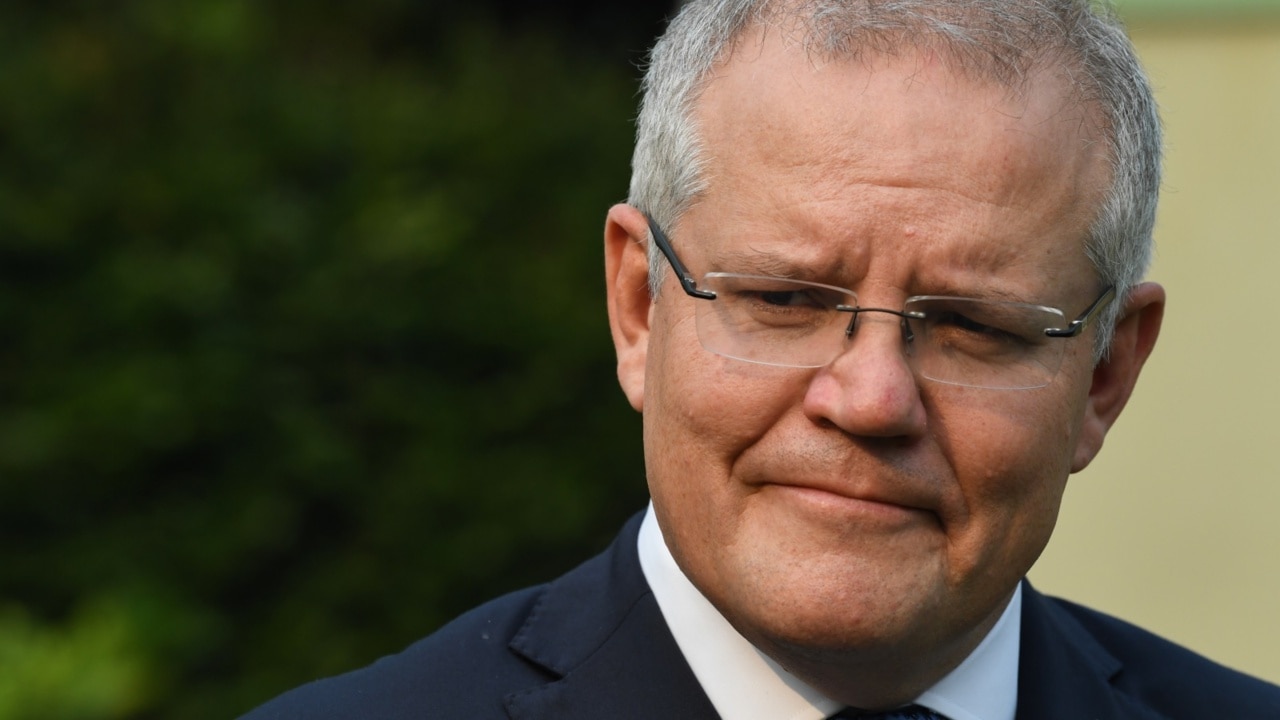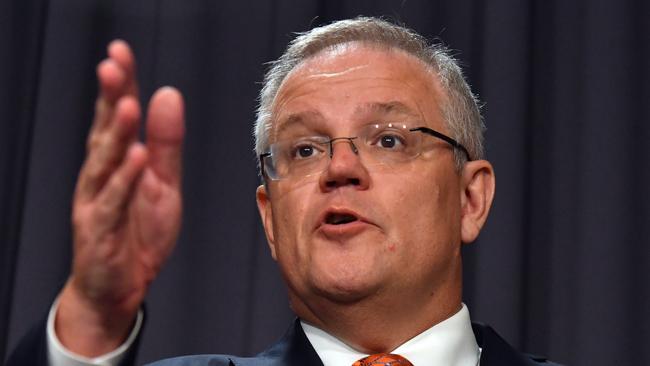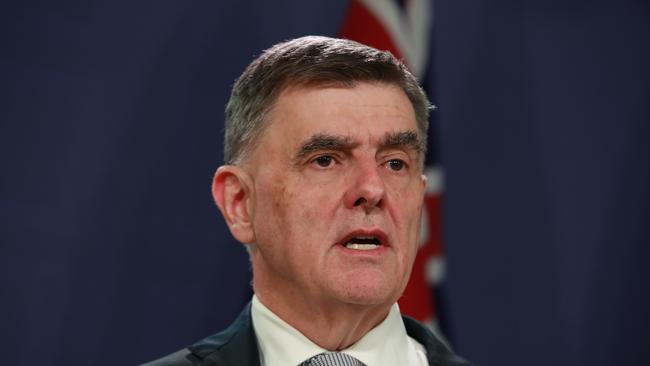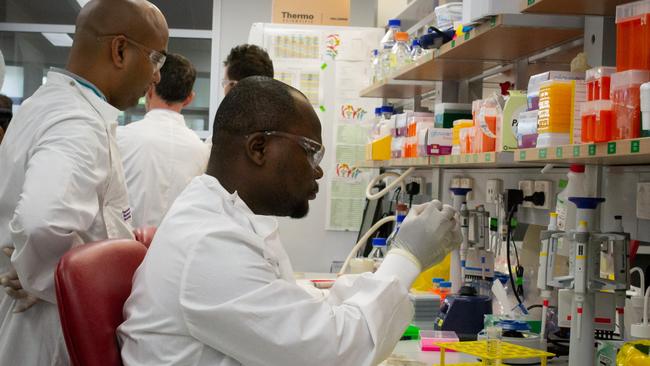Coronavirus vaccine a year away as chief medical officer predicts an Aussie epidemic could last four months
A full outbreak of coronavirus in Australia could last months, with a vaccine coming too late to stop a full-blown pandemic, the nation’s top doctor has warned.

QLD News
Don't miss out on the headlines from QLD News. Followed categories will be added to My News.
AUSTRALIA’S health system will come under strain as the coronavirus gains a foothold in the country, Prime Minister Scott Morrison said, as top health officials warned a full outbreak here could last up to four months.
It comes as the nation’s top doctor warns an epidemic could last up to four months as the virus takes hold in this country.
Virus patient attended UQ while contagious
The Aussies most likely to die from coronavirus
Chief Medical Officer Brendan Murphy
said if coronavirus reached epidemic stage in Australia, with sustained community transmission, modelling suggested it could last “eight weeks or as long as 14 to 16 weeks”.
“We don’t actually know when we are going to enter that stage … it’s very unlikely that we will peak in April,” he said.

But he said Australia was ahead of the curve and was still in containment, with only one instance of sustained transmission taking place in Sydney.
“I’m trying to tell people to stay reasonably calm about this. We’ve got small numbers of cases at the moment,” he said.
“We do expect more and I’ve also said on many occasions, for most people who get this virus, it is a very mimed illness.”
Prof Murphy also warned people who were sick, but had not travelled or been in contact with someone who had the virus, not to get tested, warning they were putting unnecessary strain on the system.
He said a vaccine was still likely to be a year away, with animal testing and human testing still a while off.
The government has revealed it will spend $1 billion on boosting up its medical stockpile including masks, while it will also rollout more pathology testing for coronavirus to get same day turnarounds for results.
More details were revealed about the government’s $2.4 billion health crisis plan.
It includes $100 million to boost staffing levels at aged care services, $30 million for more research into vaccines and treatment, and $170 million for increased pathology testing.
It is on top of the cash for public awareness campaigns, pop-up fever clinics and telehealth services revealed this morning.
About $25 million will be spent on a Home Medicines Service and $57.8 million on a remote community preparedness and retrieval program.
The National Incident Room will be given a $18.4 million boost to respond to the COVID-19 outbreak.
Mr Morrison also foreshadowed the full economic stimulus package, separate to the health plan, will be revealed on Thursday ahead of his meeting with the state premiers and Friday.
The Prime Minister said the health system would be put through a difficult time, but it was expected and planned for.
“This system will come under stress and come under strain, that’s to be expected,” he said.
“These are not be usual times and usual demands on our health system.
“That is not a reason for alarm or concern, because the plan and the resource and the preparedness and the professionalism of our health system will attend to those needs.”
Prof Murphy urged people who were not sick, or who had flu symptoms but had not been overseas or been in contact with a coronavirus patient, not to get tested.

“There is no point being tested at the moment if you have not travelled or if you’ve not been in contact – even if you have flu-like illnesses,” he said.
“You’re a returned traveller or you’ve been in contact with someone who has been a confirmed case, then you should be tested.
“But other Australians do not need testing and all they’re doing is putting an unnecessary burden on the testing.”

Health Minister Greg Hunt said the “pop-up” fever clinics would be established in co-operation to GPs in a flexible model.
Some doctors would volunteer for the practices to be established as dedicated clinics, receiving funding for doing so, while there may be temporary clinics established like the drive-through testing service in Adelaide.


